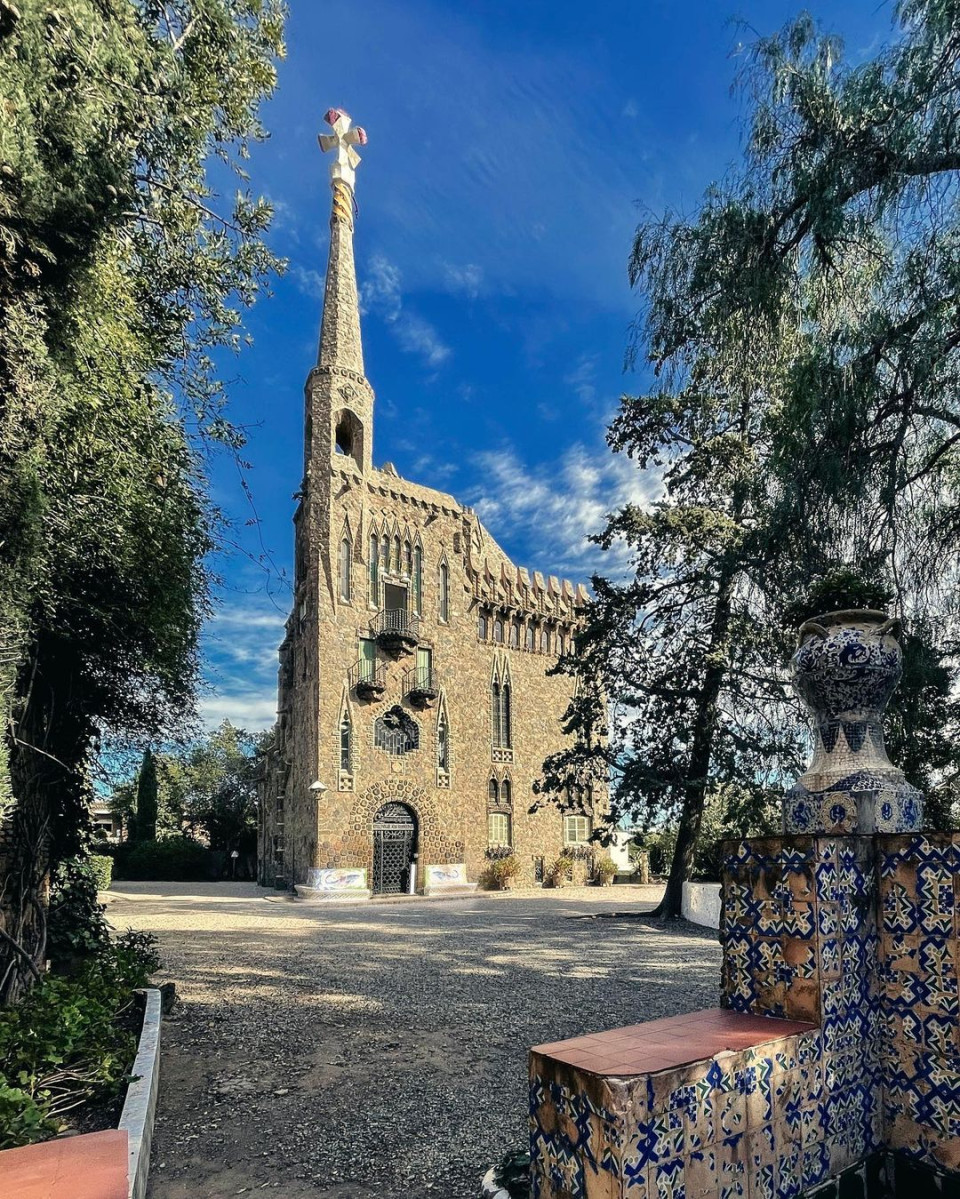You may have heard of the modernist architect Antoni Gaudí's most famous works like the Sagrada Familia or Park Güell. What you'll notice when exploring Barcelona, though, is how many others he's built around the city. Today we're exploring our 10 favourite works by Gaudí.

Casa Calvet
Located on Carrer de Casp 48 and designed as both a residential and commercial space, you’ll notice Casa Calvet isn’t as showy as Gaudí’s other works. This may have been because it has to be built between two older buildings and because of its location in a more sophisticated neighbourhood.
Torre Bellesguard
Also known as Casa Figueres, this modernist manor house stands on the ground that was once the country residence of the king of Aragon in the 15th century. Gaudí took inspiration from the typical gothic architecture of that time and built the house to resemble a medieval castle. Torre Bellesguard finally opened its doors to the public in 2013 and is a treat to see.

Finca Güell and el Drac de Gaudí
You’ll notice the Güell name coming up a lot. Eusebi Güell was an industrial tycoon who commissioned many buildings to Gaudí. Built between 1884 and 1887, Gaudí remodelled the house within the Güell pavilions and designed a wall to go around the perimeter of the property. The dragon gate, based on the mythical creature from the garden of the Hesperides, is the most notable of the work.
Casa Vicens
What makes Casa Vicens special? For one, it has a lot to do with firsts. It’s the first house that was designed by Antoni Gaudí, it’s thought of as one of the first Art Nouveau buildings ever and it’s also the first time he used an orientalist style.
Commissioned by Manuel Vicens I Montaner, Casa Vicens was used a summer house in the Gràcia neighbourhood. You’ll noticed Gaudí combined many different materials including glass, concrete, iron and ceramic tiles. Visit the now house-museum and fall in love with the lovely colours and motifs that were unusual for the year 1883 when it was refurbished by Gaudí.

Colònia Güell
Yet another of Count Güell’s commissions, the Colònia designed by Gaudí was meant to offer good living conditions for the workers on this compound. Unfortunately it was never completed as Güell ran out of funds, but we can still see the unique church without the usual crowds as the colony is situated on the outskirts of Barcelona.
Palau Güell
The Güell palace certainly gives off a feeling of opulence and grandeur. Decorated with forged iron and two immense gates that would have let in horse-drawn carriages, this work of Gaudi’s stands out in the Raval neighbourhood.

Casa Milà (La Pedrera)
Another popular spot for sightseer on Passeig de Gràcia, the Casa Milà was commonly known as La Pedrera (the stone quarry) for the manner in which Gaudí played with the natural, undulating rock façade of the building. At the time of construction, it was laughed at for its “ridiculous” and unsightly features, but is now considered a work of art.

Park Güell
Another Güell commission, Park Güell is a favourite retreat from the city for tourists and residents alike. A gorgeous park in the Horta-Guinardó neighbourhood, you’ll have stunning views over Barcelona. Part of Gaudí’s naturalist phase, the park is full of symbols and motifs from nature. The ceramic tiled benches and dragon are what make the park famous, but walking around the surrounding park area is a treat in itself.
Gaudí lived in the park, from 1906 to 1925. His house is now a museum and gives you a great insight into the man behind his creations. Güell’s original plans for the park were to include many more residences within it, but it was donated to the city for all to enjoy.
Check out a few of our other favourite parks in Barcelona.
Casa Batlló
Casa Batlló is one of Gaudi’s most detailed and intricate restorations of a building. Its gorgeous tiled exterior makes it stand out on Passeig de Gràcia in a way that was very much criticized at the time it was built.
The house is also known as “house of bones” for its skeletal design. You’ll find few straight lines in the design – Gaudí was always trying to represent the flowing forms of nature in his works. Many people claim that Casa Batlló represents the dragon and its killing by St. George, who is the patron saint of Catalonia. (Read more about Sant Jordi and the day dedicated to love, roses and reading.)
“The straight line belongs to men, the curved one to God.” – Antoni Gaudí

Sagrada Familia
Construction on Antoni Gaudí’s magnum opus began in 1892 and is expected to be completed in 2026. When the final and tallest tower is complete, it should be just one metre shorter than Montjuïc hill in Barcelona (Gaudí thought his work shouldn’t surpass God’s natural creation).
The Sagrada Familia is unlike any other cathedral in the world and is one of Barcelona’s most distinguishing features. The magnificent exterior is awe-inspiring while the breathtaking interior plays with coloured light and feels incredibly airy. Of all of Gaudí’s works, the Sagrada Familia is a must-see when visiting Barcelona.

Posted in The best of Barcelona, Things to do in Barcelona
Learn and improve your Spanish in Barcelona, one of the world's most vibrant and exciting cities.
Here at Speakeasy BCN you'll find courses for all abilities and timetables, an incredible team of talented and motivated teachers and classmates to share your interests and passions. And if you need a visa for your stay, then of course we're able to help and advise.

Start your learning Spanish in Barcelona adventure
Let us know if you have any questions about our courses, our school and life at Speakeasy.